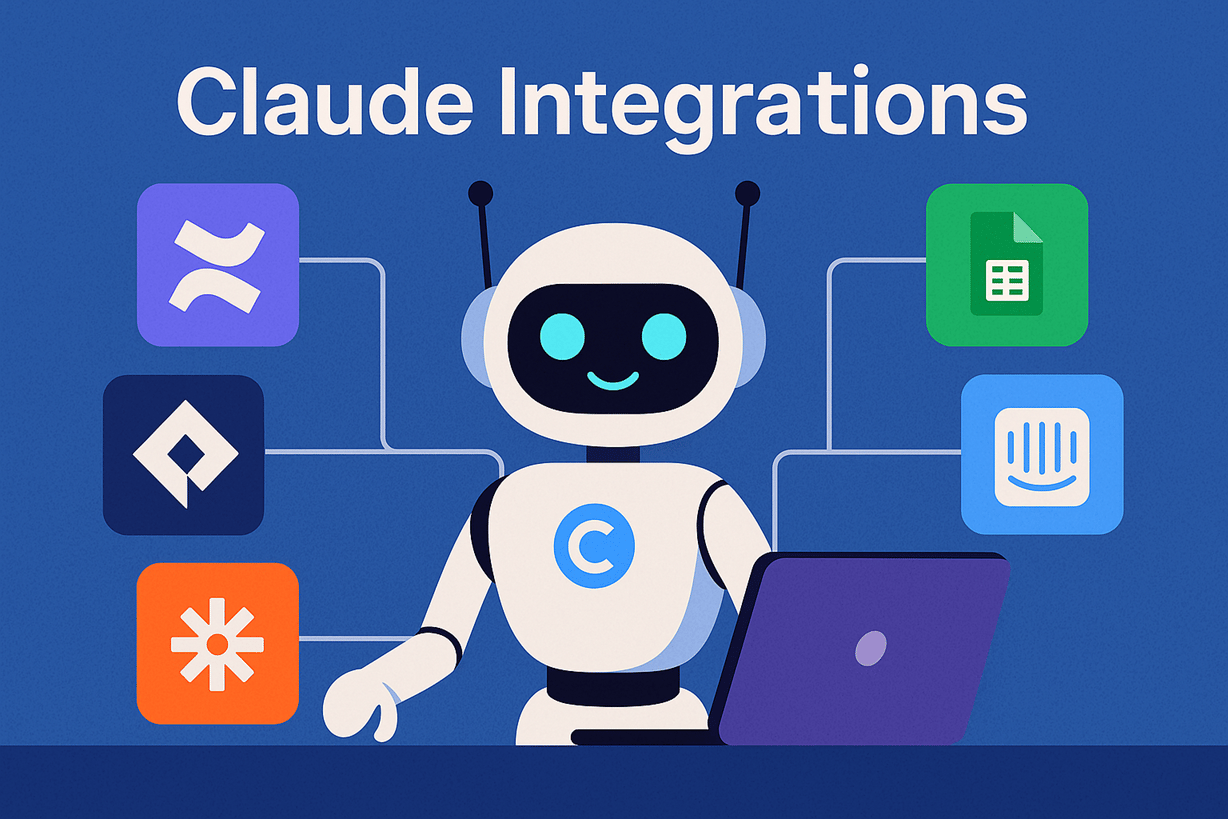
Image Source: ChatGPT-4o
Claude Adds App Integrations, Advanced Research for Paid Users
Anthropic has launched Claude Integrations, a major update that connects its AI assistant to popular workplace tools like Jira, Zapier, Intercom, and Google Workspace—making Claude more deeply embedded in day-to-day work. The company is also introducing Advanced Research, an upgraded mode that allows Claude to deliver comprehensive reports by searching the web, internal documents, and now any connected app.
These features are available now in beta for Claude.ai Max, Team, and Enterprise plan users, with broader access coming soon to the Pro tier. Web search is now globally available to all paid plans.
What’s New: App Integrations via MCP
Claude’s new Integrations are built on the Model Context Protocol (MCP), an open standard launched in November that lets AI systems connect to external tools and data. Until now, MCP connections were limited to local environments. With this update, Claude can now connect to remote MCP servers across both desktop and web-based applications. Developers can create and host their own servers to extend Claude’s functionality, while users can browse and connect multiple integrations to tailor the assistant to their specific workflows.
Connecting your tools to Claude gives it a deeper understanding of your work—capturing context like project history, task progress, and internal knowledge. With this insight, Claude becomes a more capable collaborator, able to take meaningful actions across your workflows and support complex projects with informed, step-by-step assistance.
Key launch partners include:
Jira and Confluence (Atlassian)
Zapier
Cloudflare
Intercom
Asana
Square
Sentry
PayPal
Linear
Plaid
Anthropic says additional integrations are in development, with future support planned for platforms like Stripe and GitLab.
Developers can create their own integrations in under 30 minutes using Anthropic’s documentation or platforms like Cloudflare, which streamline OAuth authentication and deployment.
Each integration enables Claude to take action and understand context across your workspace. For example:
With Zapier, Claude can execute pre-built workflows involving thousands of apps—such as retrieving sales data from HubSpot or prepping meeting briefs from your calendar.
With access to Atlassian’s Jira and Confluence, Claude can help build new products, manage tasks more effectively, and scale team output by summarizing information and generating multiple Confluence pages and Jira work items in a single workflow.
With Intercom, Claude can analyze user conversations and identify feedback patterns, then collaborate with Intercom’s AI agent Fin—now an MCP client—to take action, such as automatically filing bugs in Linear. Claude can manage the full feedback loop by reviewing conversation history, interpreting user attributes, and guiding issue resolution from initial report to fix—all within a single chat.
These integrations allow Claude to operate as a central, AI-powered collaborator—executing workflows, retrieving key insights, and updating systems without manual effort.
Advanced Research: From Hours to Minutes
Claude’s Research tool now supports far more robust investigation across connected data sources, both internally and externally. When activated, Advanced Research breaks down complex queries into smaller components, investigates each deeply, and delivers a detailed report complete with source citations. Most reports are completed within 5 to 15 minutes, but more complex investigations may take up to 45 minutes—compressing what would otherwise require hours of manual research.
Key updates include:
Search across web, Google Workspace, and now third-party app Integrations
Reports that complete in 5 to 45 minutes, depending on complexity
Citations linking directly to source material, for transparency and auditability
Anthropic notes that even the most complex research requests—tasks that could take hours manually—can now be fulfilled by Claude in under an hour with structured, traceable output.
Getting Started
The new features are available now in beta for Claude.ai’s Max, Team, and Enterprise plans. Web search is rolling out globally across all paid plans. Users can begin connecting apps, setting up MCP servers, and accessing documentation through Claude’s Help Center.
What This Means
Claude is evolving from a conversational assistant into an integrated AI work partner—one that doesn’t just generate content, but actively interacts with the apps and systems professionals rely on every day. With app integrations and advanced research capabilities, Claude can now automate workflows, execute tasks across platforms, and deliver insights that traditionally required hours of manual effort.
For users, this means faster decision-making, reduced context switching, and deeper personalization. For developers, Anthropic’s use of the Model Context Protocol opens a new ecosystem for building AI-compatible tools. And for the enterprise, this signals a shift toward AI agents that are embedded—not just consulted—within daily operations. As more organizations connect Claude to core systems, the lines between AI assistant and digital coworker will continue to blur.
Editor’s Note: This article was created by Alicia Shapiro, CMO of AiNews.com, with writing, image, and idea-generation support from ChatGPT, an AI assistant. However, the final perspective and editorial choices are solely Alicia Shapiro’s. Special thanks to ChatGPT for assistance with research and editorial support in crafting this article.
